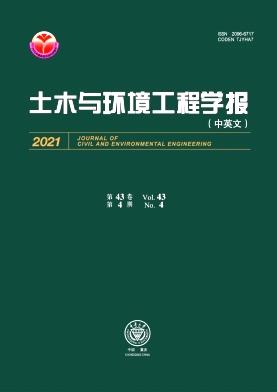Structural Strengthening/Repair of Reinforced Concrete (RC) Beams by Different Fiber-Reinforced Cementitious Materials - A State-of-the-Art Review
Q2 Engineering
Tumu yu Huanjing Gongcheng Xuebao/Journal of Civil and Environmental Engineering
Pub Date : 2020-01-01
DOI:10.37421/jcde.2020.10.354
引用次数: 7
Abstract
In the last few decades, premature deterioration of reinforced concrete (RC) structures has become a serious problem because of severe environmental actions, overloading, design faults, and materials deficiencies. Therefore, repair and strengthening of RC elements in existing structures are very important to extend their service life. There are numerous methods for retrofitting and strengthening of RC structural components such as; steel plate bonding, external pre-stressing, section enlargement, fiber-reinforced polymer (FRP) wrapping, and so on. Although these modifications can successfully improve the load-bearing capacity of the beams, they are still prone to corrosion damage resulting in failure of the strengthened elements. Therefore, many researchers used cementitious materials due to its low-cost, corrosion resistance, and resulted in the improvement of the tensile and fatigue behaviors. Different types of cementitious materials such as; fiber-reinforced concrete (FRC), high performance concrete (HPC), high strength concrete (HSC), ultra-high performance concrete (UHPC), steel fiber-reinforced high strength lightweight self-compacting concrete (SHLSCC), fabrics reinforced cementitious material (FRCM) and so on have been used to strengthen structural elements. This paper summarized previously published research papers concerning the structural behaviors of RC beams strengthened by different cementitious materials. Shear behaviors, flexural characteristics, torsional properties, deflection, cracking propagation, and twisting angle of the strengthened beams are explained in the present paper. Finally, proper methods are proposed for strengthening RC beams under various loading conditions.不同纤维增强胶凝材料对钢筋混凝土(RC)梁的结构加固/修复——最新进展综述
在过去的几十年里,由于严重的环境行为、超载、设计缺陷和材料不足,钢筋混凝土(RC)结构的过早劣化已经成为一个严重的问题。因此,对既有结构中的钢筋混凝土构件进行修复和加固,对延长其使用寿命具有十分重要的意义。有许多方法来改造和加强钢筋混凝土结构部件,如;钢板粘接、外预应力、截面放大、纤维增强聚合物(FRP)包覆等。虽然这些修改可以成功地提高梁的承载能力,但它们仍然容易受到腐蚀破坏,导致加固元件失效。因此,许多研究人员采用胶凝材料,由于其成本低,耐腐蚀,并导致抗拉和疲劳性能的改善。不同类型的胶凝材料如;纤维增强混凝土(FRC)、高性能混凝土(HPC)、高强混凝土(HSC)、超高性能混凝土(UHPC)、钢纤维增强高强轻质自密实混凝土(SHLSCC)、织物增强胶凝材料(FRCM)等已被用于结构构件的加固。本文对不同胶凝材料加固RC梁的结构性能进行了综述。对加固梁的抗剪性能、受弯特性、抗扭性能、挠度、裂纹扩展及扭转角等进行了分析。最后,提出了不同荷载条件下钢筋混凝土梁的加固方法。
本文章由计算机程序翻译,如有差异,请以英文原文为准。
求助全文
约1分钟内获得全文
求助全文
来源期刊

Tumu yu Huanjing Gongcheng Xuebao/Journal of Civil and Environmental Engineering
Engineering-Architecture
CiteScore
1.30
自引率
0.00%
发文量
5346
 求助内容:
求助内容: 应助结果提醒方式:
应助结果提醒方式:


